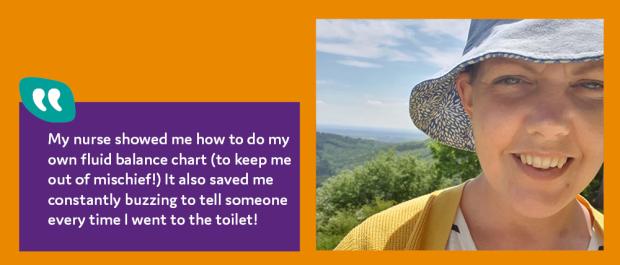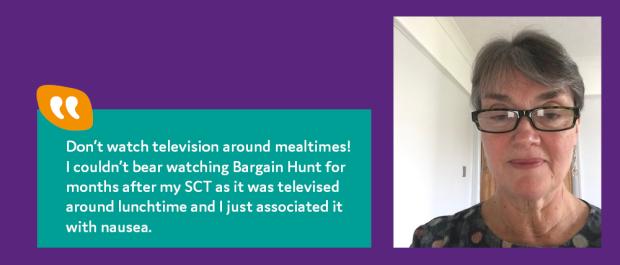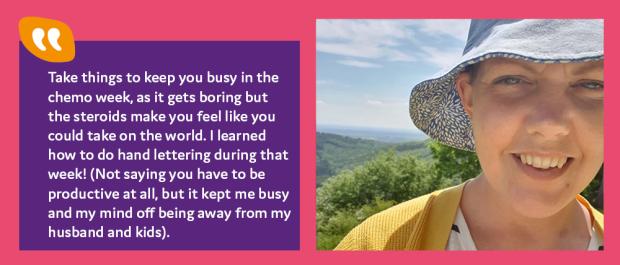Top tips for stem cell transplants
We asked members of our closed Facebook support group that have had stem cell transplants to tell us about their experiences and their 'top tips' for getting through their transplants.
Karen, Mike and Non shared the following with us.
We also suggest talking this through with your nurse or medical team who might be able to advise you on what to bring to make your stay as comfortable as possible.
You might like to see our information on having a stem cell transplant.
Being practical
Practical things to think about and bring with you. Making your room feel cosy might make your stay more comfortable, so talking to your team about what you can bring with you can be a good idea.
- Taking a notepad and pen is a good idea so that you can keep a diary, write down any thoughts, or questions you might have for your medical team.
- Take your favourite hand creams and lotions (although be aware that in the future you might find that you associate them with being in hospital).
- Take your favourite pillow, cosy blanket or duvet as hospital bedding may not be as comfortable as your own. The hospital will clange the bed linen dilay. You might also like to take a blanket or throw for additional warmth and comfort.
- Take some battery-powered or ‘flameless’ candles. These are safe (as they are not a naked flame) but can really change the ambience in the room.
- Ask if you are able to put up posters or photos on the wall.
- Take a sleep mask and ear plugs as it can be quite noisy at night.
- You might like to take your own soft or quilted toilet roll and wet wipes (just in case of an upset tummy).
- You can feel very fatigued during treatment so it can help to be prepared for that. Taking it easy, asking for help, and using things such as shower chairs can be helpful too.
Your hospital team might also give you a list of what to bring with you on the day.

Snacks & drinks
The hospital will provide your food and drinks, but you might also like to think about the following.
- You might like to ask in advance whether there is a fridge and microwave available for food. If so, you might like to take some favourite drinks, microwavable snack and meals, or tinned food. If there is a freezer, having some ice lollies can really be soothing if you have a sore mouth.
- Non-perishable snacks that don’t need a fridge are also a good idea, such as cereal bars and biscuits.
- If you have a sore mouth and are finding eating difficult, things like shakes can be good. (Talk to your medical team if you are having problems with eating or swallowing as they will be able to make suggestion for what might help)
- Taking some squash or boiled sweets might help if you have a bad taste in your mouth from chemotherapy treatment.

Clothing
The following are tips for making your stay as comfortable as possible. You'll need changes of clothes for each day.
- Take comfortable clothing, such as jogging bottoms and T-shirts.
- Don’t forget your nightwear, dressing gown and slippers, and plenty of pairs of underwear.
Things to keep you occupied
You may be in hospital for some time, so the following are suggestions for things to keep to occupied during your stay.

- If you have a smartphone or tablet, load it up with your favourite films and TV series. (And don’t forget your charger!) If there is wifi you might want to consider a subscription to a streaming service.
- Download some music or sign up to a music streaming service on your phone or MP3 (again, don’t forget your charger!)
- Take some headphones for privacy and so as not to disturb others.
- Take some magazines, puzzle books or crosswords, or colouring books (and don’t forget your pencils and pens!) These can be nice things to ask other people to buy for you when they ask what they can do to help!

Join our Facebook support group today
This information comes from our Facebook users, and is a list of suggestions from the community based on what they personally found useful when they had treatment. This is not intended to be medical advice and is not a replacement for advice from your medical team. If you are not sure what to do to prepare for your treatment, or what to take with you, always consult your medical team.
